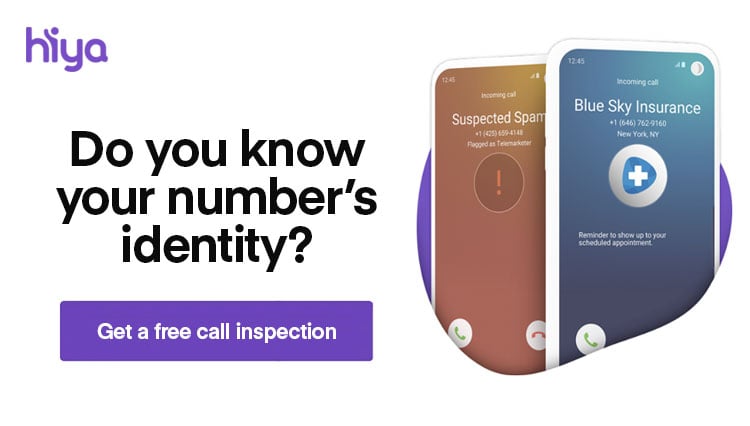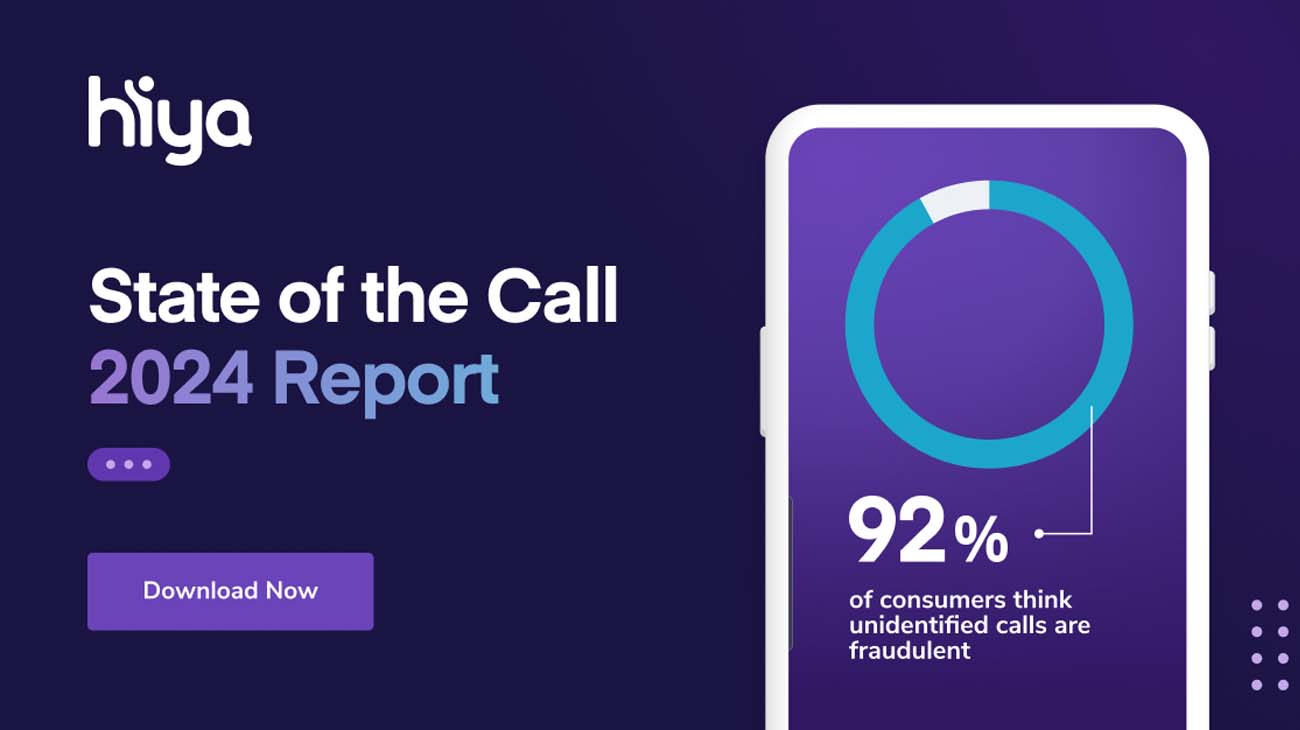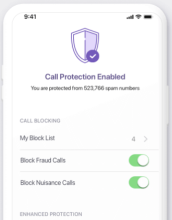Open enrollment for health insurance happens around this time every year in the US, generally from late October through early December. And just as sure as there will be companies vying for consumers’ health insurance dollars, there will be scammers riding their coattails trying to divert those dollars into their own pockets.
Open enrollment is the one time of year when consumers can change their health insurance plans. Health insurance scams peak during open enrollment season in the fall, as seen from the graph below.

Medicare and other health insurance scams jump during open enrollment season, usually late October through early December.
Open enrollment robocalls
Below are examples of open enrollment robocalls currently making the rounds. These come from the Hiya honeypot, a collection of more than 100,000 Hiya-owned phone numbers used to record and analyze incoming calls. The honeypot is one of the tools Hiya uses to identify spam campaigns so it can block scam calls and label nuisance calls.
“Good day. I'm Dale calling about this year's open enrollment on a recorded line with Elite Medicare Options. Before I can get a licensed representative on the line, I need to confirm you have Medicare parts A and B. Please answer yes or no or say remove to be removed from the contact list.”
“Hey, this is Ashley from the Health Enrollment Center. We haven't heard back from you since our last communication. You may still qualify for an affordable health insurance plan with no deductibles. Give us a call today at 888…”
“Hello, this is Medicare Solutions. Just following up on your inquiry you made online regarding getting information on a new Medicare plan. Our goal is to help you find a plan with more benefits and save you money. Please give us a call at …”
You may wonder if these are just telemarketing calls placed by legitimate companies to promote their healthcare plans. That’s unlikely. Honeypot phone numbers don’t belong to individuals, so there’s no reason for a legitimate company to call them. And honeypot numbers certainly did not request information or fill out an online form seeking a callback.
Honeypot calls show that the scam often begins with a robocall, trying to confirm whether the recipient has Medicare or is in need of a health insurance plan. A “yes” answer to the robocall will likely connect the recipient with a live agent who will try to get the victim to reveal personal information, such as a Medicare number. A “no” or “remove me from the list” answer lets the scammer know it’s a valid phone number, which could lead to future scam calls.
Many of the robocalls in the Hiya honeypot appear to use automated voice response systems. Here’s how some of the robocalls end:
“Please answer yes or no or say remove to be removed from the contact list. Hold up, say that again. Do you have Medicare or Medicaid?”
“I need to confirm you have Medicare parts A and B before I bring a licensed agent on the line. Hang on. I didn't catch that. What did you say?”
Medicare: King of open enrollment scams
The most common open enrollment scam involves Medicare, the US government-funded health insurance program for Americans age 65 and older. Medicare open enrollment runs Oct. 15 through Dec. 7.
According to the Federal Trade Commission, “Every year during open enrollment season (and plenty of other times too), scammers pretending to be from the government call trying to steal your money and your personal information.”
The FTC advises seniors to never give out personal information to someone claiming to be affiliated with Medicare — and it warns not to trust caller ID, which fraudsters can easily spoof.
Reactions from call recipients
Another tool Hiya uses to identify spam campaigns is user reports. Consumers using Hiya Protect via their carrier, device manufacturer, or the Hiya mobile app can tap a prompt on their handset, reporting the call as one of 15 types of unwanted calls. Users can also leave a comment about the call they just received. Here’s what users have been saying about unwanted Medicare calls they’ve received:
“Medicare scam call. Asked for my Medicare card number, name of my primary care doctor, date of birth.”
“Medicare fraud. They called using a Virginia medical facility phone number.”
“Wanting to know if I had received my healthy food and flex card. Told them no and his next question was, can I have the number off your red, white and blue Medicare card? I told him I was not interested and I hung up.”
“Claimed to be with Medicare asking for my dad's medicare card number and effective date. I told them Feb 31st and they accepted it.”
Other health insurance scams
Medicare scams aren’t the only calls to be on the watch for during open enrollment season. The FTC warns consumers to be on the lookout for other health-related scams.
- Medical Discount Plans – Medical discount plans are not health insurance, but the FTC says dishonest marketers will sometimes make it sound like they’re offering a health insurance plan. Medical discount plans charge a monthly fee that entitles users to discounts on certain services insurance plans may not cover, such as dental, vision, and hearing services. According to the FTC, “While there are medical discount plans that give legitimate discounts, others take people’s money and offer very little in return.”
- Children’s Health Insurance Program – In September, the FTC issued an alert about Children’s Health Insurance Program (CHIP) scams. “During the pandemic, your state’s Medicaid CHIP might have helped — but with the end of the pandemic, states may be reaching out to update your family Medicaid enrollments. Scammers might try to get to you first,” the alert stated. The FTC tells consumers that only scammers will ask for personal information over the phone or demand that the individual pay a fee to renew CHIP insurance.
How to fight back against open enrollment scams
Hiya offers various solutions to fight against open enrollment scams — and any other fraud or nuisance calls.
Carriers can add Hiya Protect, which protects their subscribers by blocking fraud calls and, labeling spam calls, and helping them discern wanted calls from unwanted calls. Using Adaptive AI technology, Hiya Protect analyzes past and present call patterns and responds to new threats as they emerge.
Enterprises can help their customers feel safe answering the phone by adding Hiya Connect, which enables businesses to display their company name, logo, and reason for the call on the recipient’s mobile phone. With Hiya Connect, enterprises can improve customer engagement while protecting their customers from deceitful interactions.
Individuals should contact their phone carrier to see if it offers call protection at the network level. If not, individuals can download the Hiya mobile app.












